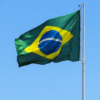Brazil’s Ministry of Finance recently announced that 89 operators will be permitted to offer their betting products by the end of the year. This move follows Brazil’s earlier warning that offshore companies must cease their activities in the country unless they have applied for a local license by October 1, 2024.

Brazil’s Ministry of Finance Announces Approval for 89 Operators to Offer Betting Products by Year-End
The decision comes as part of Brazil’s broader regulatory framework for sports betting and online gambling, designed to create a safe, fair, and well-monitored market. Here, we delve into the details of this significant shift, exploring the implications for operators, players, and the future of the industry in Brazil.
Brazil’s Transitional Phase for Betting Operators
The transitional phase from October 1 to December 31 will be a critical period for betting operators. During this time, only those operators serious about doing business in Brazil will be allowed to operate. This strict measure ensures that only reputable companies with long-term business interests in Brazil will be part of the regulated market moving forward.
Operators who have yet to apply for a betting license will be required to exit the market. Brazil has been very clear in its communication: only operators who comply with its legal framework will be permitted to continue. Those who fail to comply will see their websites removed from the Brazilian market as early as October 11.
This transitional phase signifies Brazil’s firm commitment to a well-regulated betting environment, focused on protecting consumers and ensuring only responsible operators are granted access to the market.
Approved Operators and Their Brands
Among the 89 operators allowed to offer their services by the end of the year, some of the most prominent names in the global betting industry are included. These operators will be allowed to continue running a total of 193 brands. Some of the key names mentioned in the Ministry’s announcement include:
- bet365
- Betano
- Betway
- Betsson
- Entain
- Flutter
- LeoVegas
- Superbet
These well-known operators have already established themselves as reputable entities in other regulated markets around the world. Their inclusion in Brazil’s regulatory framework solidifies their commitment to responsible gaming and long-term operations in the country.
License Costs and Market Entry Requirements
To operate legally in Brazil, companies are required to secure a betting license. The cost for a license has been set at $5.5 million, a figure designed to ensure only serious operators enter the market. This licensing fee is substantial, reflecting the size of Brazil’s potential market and the government’s commitment to ensuring only financially stable, reputable operators participate.
This fee is part of a larger strategy by the Ministry of Finance’s Secretariat of Prize and Bets (SPA) to regulate the market effectively and minimize the risk of illegal or unscrupulous operators entering the space.
Companies that fail to comply with Brazil’s stringent regulatory requirements will be forced out of the market, ensuring a safer environment for players and helping to prevent issues such as money laundering and problem gambling.
Regulation Aimed at Consumer Protection
The chief of the SPA, Regis Dudena, highlighted that the regulation is primarily focused on protecting vulnerable audiences from potential harm. By allowing only reputable operators with a strong commitment to responsible gambling, Brazil is taking a proactive stance in ensuring that consumers are shielded from potential risks often associated with unregulated gambling markets.
This focus on consumer protection is evident in the strict licensing requirements and the high barriers to entry for operators. By prioritizing transparency, responsible gaming practices, and a well-regulated environment, Brazil is setting a high standard for what a regulated betting market should look like.
Offshore Operators Forced to Exit
Brazil had previously issued warnings to offshore operators that they must cease their activities by October 1, 2024, unless they have applied for a local license. Offshore operators, particularly those without any form of regulation, have posed significant challenges to Brazil’s efforts to create a safe betting environment.
These operators often operate outside of Brazil’s legal framework, making it difficult for the government to monitor their activities and enforce consumer protections. By requiring all operators to apply for local licenses, Brazil is working to eliminate illegal gambling activities and protect its citizens from potential exploitation.
Once the transitional phase concludes, all websites run by offshore operators who have not applied for a local license will be blocked, effectively cutting off access to Brazilian consumers.
What’s Next for the Brazilian Betting Market?
While the current list of 89 approved operators represents a significant step forward, it is by no means the final list. Brazil’s betting market is expected to continue growing, with more operators likely to apply for licenses in the future.
This evolving market has already attracted significant international interest, with major global operators eager to tap into Brazil’s vast consumer base. The sports betting and online gaming sectors are anticipated to grow rapidly once the full regulatory framework is in place.
Conclusion: Brazil’s Grand Launch into Regulated Betting
As Brazil moves towards fully regulated online sports betting, the decision to allow 89 operators to offer their products marks a pivotal moment in the country’s gambling industry. By ensuring that only reputable, responsible operators are allowed to continue operating, Brazil is creating a safe, transparent, and competitive market that will benefit both consumers and businesses alike.
FAQs About Brazil’s Ministry of Finance Allowing 89 Betting Operators
1. What is the significance of Brazil’s Ministry of Finance approving 89 betting operators?
The Ministry of Finance has approved 89 operators to offer betting products by the end of the year, marking a crucial step towards fully regulating the online gambling market in Brazil. This ensures only reputable companies committed to responsible gaming are allowed to operate, creating a safer environment for consumers.
2. What is the timeline for operators to continue doing business in Brazil?
Brazil’s transitional phase runs from October 1 to December 31. During this period, only operators serious about applying for a local license will be allowed to continue operations. Those who fail to submit their applications by October 11 will have their websites removed from the Brazilian market.
3. Which major betting brands are included in the approved list of 89 operators?
Some of the notable brands included are bet365, Betano, Betway, Betsson, Entain, Flutter, LeoVegas, and Superbet. These globally recognized operators have committed to entering the regulated Brazilian market.
4. How many brands will the 89 operators run in total?
The 89 operators are permitted to run a total of 193 brands within the regulated Brazilian betting market by the end of the year.
5. What is the cost of securing a betting license in Brazil?
Operators wishing to continue doing business in Brazil are required to pay a $5.5 million license fee. This high fee ensures only serious operators with strong financial stability enter the market.
6. What will happen to offshore operators that have not applied for a license?
Offshore operators who have not applied for a Brazilian betting license must exit the country by October 1, 2024. Their websites will be removed by October 11 if they fail to comply.
7. Why is Brazil regulating its online gambling market?
Brazil aims to create a fair, transparent, and safe betting environment by allowing only reputable operators. This regulation is designed to protect vulnerable consumers from potential harm and ensure responsible gaming practices are followed.
8. Is the list of 89 operators final?
No, the current list of 89 operators is not final. More companies may apply for licenses in the future, as Brazil’s betting market continues to expand after the transitional phase.
9. How does the licensing system contribute to consumer protection in Brazil?
By setting a high barrier to entry, Brazil’s licensing system ensures that only financially sound, responsible companies operate in the country. This focus on consumer protection helps prevent problems like illegal gambling, money laundering, and problem gambling.

















